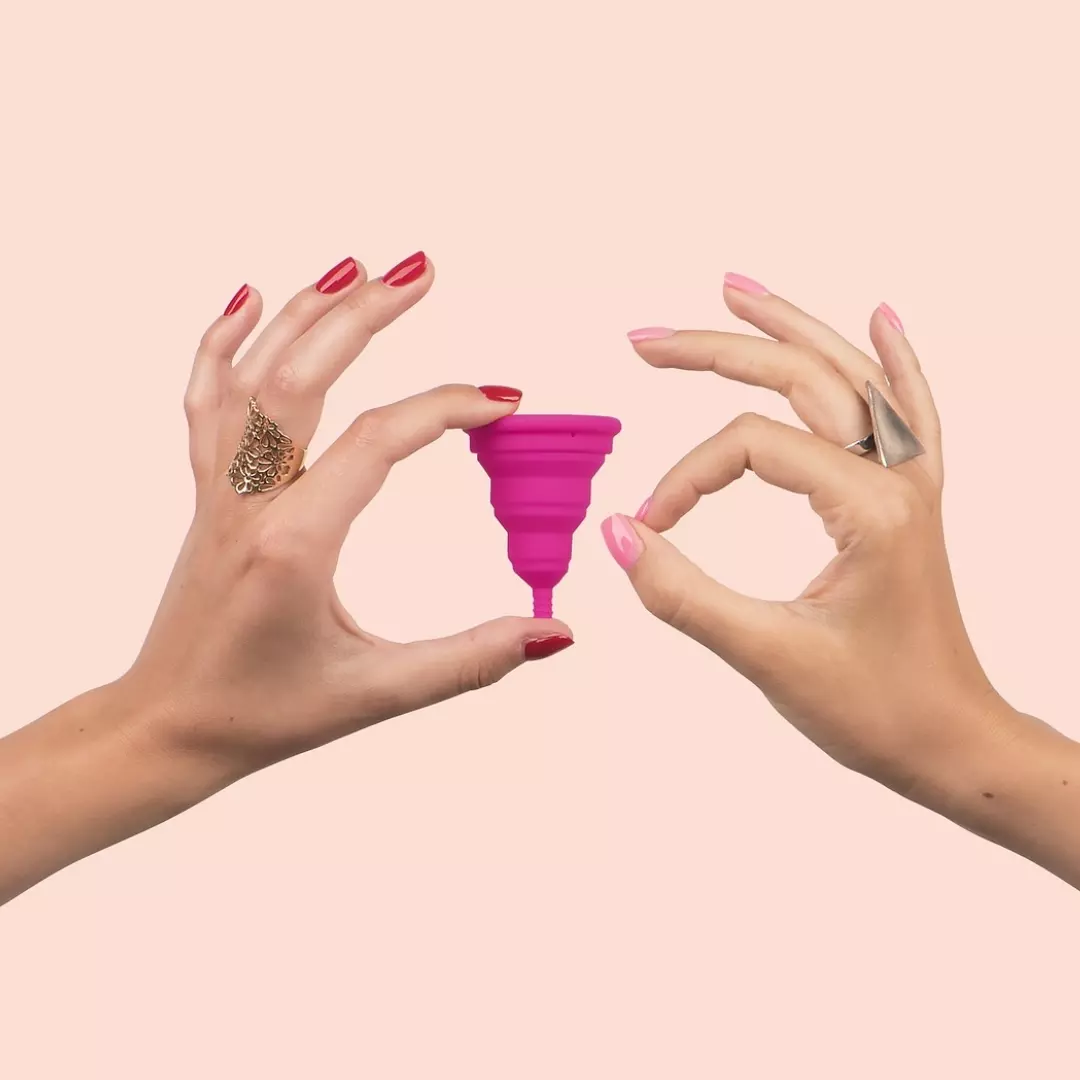
Image Credit: Pixabay (Representative)
Study Confirms Menstrual Cups Reduce Non-Biodegradable Waste by 99%
Writer: Aakanksha Jetley
She is a passionate creative writer aspiring to be a journalist. An avid reader, writer-performer, and appreciator of poetry who is in complete awe of everything art. She closely follows all updates related to politics, lifestyle, travel, and the entertainment industry.
India, 7 Jun 2023 10:04 AM GMT
Editor : Ankita Singh |
A literature lover who likes delving deeper into a wide range of societal issues and expresses her opinions about the same. Keeps looking for best-read recommendations while enjoying her coffee and tea.
Creatives : Ankita Singh
A literature lover who likes delving deeper into a wide range of societal issues and expresses her opinions about the same. Keeps looking for best-read recommendations while enjoying her coffee and tea.
A new study by scientist Soumya Swaminathan reveals that a woman generates around 14.1 kg of non-biodegradable waste in a lifetime if she uses commercially manufactured disposable sanitary pads. However, if she uses menstrual cups, she will yield.06 kg of non-biodegradable waste.
On World Environment Day, June 5, scientist Soumya Swaminathan published a report on using menstruation cups – a strategy for managing menstrual hygiene and minimizing the formation of total non-biodegradable waste of disposable sanitary pads by 99 percent.
A report titled 'Why India needs to move beyond sanitary pads' was presented by Action Research and Training for Health (ARTH) at a webinar called 'Sustainable Menstrual Hygiene Options.' ARTH and the Population Foundation of India organized the webinar.
According to Swaminathan, the report shows that if a woman uses commercially-manufactured disposable sanitary pads, she produces approximately 14.1 kg of non-biodegradable waste in her lifetime. However, if she uses menstrual cups, she only generates 0.06 kg of non-biodegradable waste. This reduces the amount of non-biodegradable waste by 99%, making it a beneficial intervention for the environment, personal health, and hygiene.
"Menstrual cups are practical, hygienic, and cost-effective. More and more women need to know about them, and myths around their use need to be busted," she added.
The ARTH report shows that pads are the most frequently used method due to heavy promotion by the business sector and government subsidies that offer them for free or at a reduced cost.
It is noted that pads comprise 49% polymers, and disposal of old sanitary pads is still an issue; only two Indian cities, Pune and Bengaluru, segregate menstruation trash during everyday garbage collection.
As per the report in Business Standard, Incinerators, deep burial, composting, and pit burning are all prescribed methods for processing and disposing of used pads. If menstrual products are not disposed of properly, they can harm both our health and the environment. Additionally, the study notes that tampons, which contain 10% non-biodegradable materials, cannot be reused.
Expanding Sustainable & Reusable Menstrual Options
This study explores various approaches to managing menstrual hygiene and highlights the importance of adopting sustainable and reusable alternatives that benefit women and the environment.
It makes a case for menstruation cups, stating that they have been accessible since the 1930s and are available in the market and on e-commerce sites under numerous brand names.
The cup is made of medical-grade silicone and will not degrade into microplastics. "It is reusable and has a far lower environmental impact than sanitary pads," said ARTH CEO Sharad Iyengar.
According to NFHS-5 (2019-21), 77 percent of girls and women (15-24 years old) (89 percent in urban areas and 72 percent in rural regions) used a hygienic way to manage their menstruation.
ARTH successfully adopted menstrual cups in two districts of Rajasthan as part of recorded research, the results of which were reported during the webinar.
Poonam Muttreja, executive director of the Population Foundation of India, stated that the benefits of menstrual cups included usage for a more extended duration of menstruation and cost-effectiveness.
"However, it is important to undertake communication campaigns with communities that support the use of menstrual cups. Evidence shows that women who transitioned from locally made cloth pads to cups experienced high levels of satisfaction. Promoting cups as a method of menstrual hygiene management along with other options like pads and tampons will offer choice to women and let them choose a method that they prefer to use."
The webinar highlighted the voices of young advocates who described their experiences spearheading projects for menstrual hygiene and cloth pad accessibility in their different communities.
Also Read: "Wholesome": Mother Celebrates Daughter's 'Average' Board Exam Score, Netizens Applaud
 All section
All section













